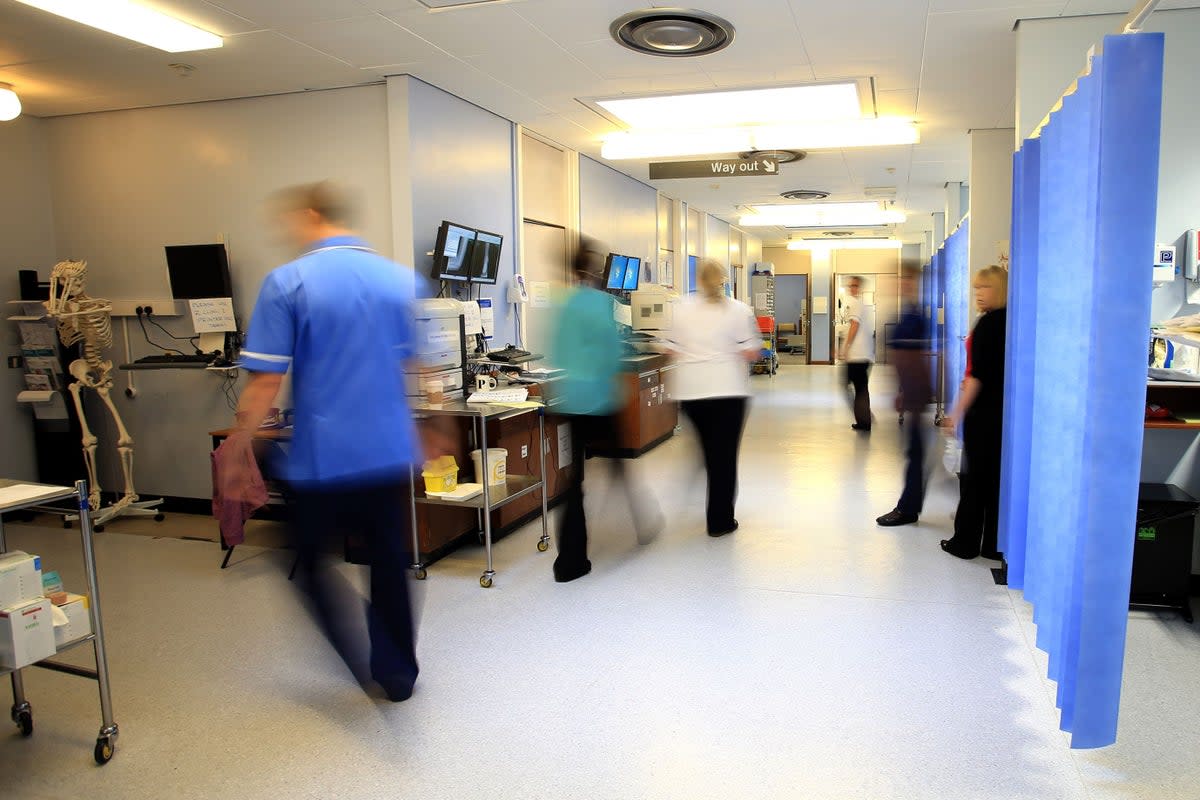Mentally unwell children put through ‘torture’ on wrong NHS wards, watchdog warns

Children with mental health illnesses are forced to stay in wards not fit to care for them with patients warning these hospital stays are like a “form of torture”, an NHS safety watchdog has found.
Children with mental health conditions were admitted to general hospital wards, not intended for mental health care, nearly 44,000 times in 2021 and 2022, the Health Services Safety Investigation Body has warned.
These wards which are “noisy, busy and brightly lit” are not often appropriate for these children who require mental healthcare and are unable to keep them safe, HSSIB said in a report on Thursday.
The watchdog is calling for new guidance for hospitals on how to adapt their general paediatric wards for children who have mental health support needs.
In a new investigation, the watchdog said it found in some hospitals patients were placed in rooms with “little or no consideration of therapeutic elements” which are “stripped of everything” including window blinds and shower curtains. In one hospital, staff said even the mattresses are removed.
The news comes after The Independent revealed last year thousands of children in mental health crisis are being treated on inappropriate general wards – with some forced to stay for more than a year and staff not properly trained to care for them.
The latest HSSIB report comes as it has been charged with carrying out a review into mental health services following reports by this paper.
One patient speaking with HSSIB of their experience in a general hospital ward said when they were suffering from a mental health crisis they “felt they had no hope” and that to have no human contact on the ward was a “form of torture.”
The regulator has said improvements must be made to hospital wards that admit mentally unwell children, including having single private rooms, access to outdoor spaces, and nature, art, exposure to daylight and activities to occupy them.
According to data in 2023, one in five young people in England aged 8 to 16 years showed signs of having a probable mental health disorder.
Between 2021 and 2022 11.7 per cent, or 39,926 admissions to paediatric wards, for physical health, were for children who had a mental health condition.
HSSIB’s report was triggered by the story of a 17-year-old girl referred to only as Leah in the report, who was a child in care.
She had a history of trauma including expressing suicidal thoughts and had received post mental health support.
Following multiple visits to A&E, she was admitted to a paediatric ward where police had to stay overnight with her, during which time she was handcuffed when she attempted to leave.
More police were called to the ward when she tried to flee and was brought back, as she was making attempts to self-harm.
Hospital staff there told HSSIB the ward was “not safe” for children and young people with “mental health needs” and that it was difficult to stop patients from fleeing.
During the investigation, staff at another hospital said their paediatric ward for children and young people with mental health needs was “not nice”, while images shared with the regulator showed “stark” rooms with nothing in them.
Other children were placed on open wards with other patients, the investigation found.
One young person who had an eating disorder was force-fed with a tube in front of others with only curtains separating her from other children.
One parent told investigators: “Burly gentlemen in high vis with all the security gear come striding into the ward … we’ve had security guards that straddled her which is completely inappropriate.” The investigation is aware that national work has just started in relation to restrictive practices on acute paediatric wards.”
If you are experiencing feelings of distress, or are struggling to cope, you can speak to the Samaritans, in confidence, on 116 123 (UK and ROI), email jo@samaritans.org, or visit the Samaritans website to find details of your nearest branch. If you are based in the USA, and you or someone you know needs mental health assistance right now, call or text 988, or visit 988lifeline.org to access online chat from the 988 Suicide and Crisis Lifeline.
This is a free, confidential crisis hotline that is available to everyone 24 hours a day, seven days a week. If you are in another country, you can go to www.befrienders.org to find a helpline near you.

